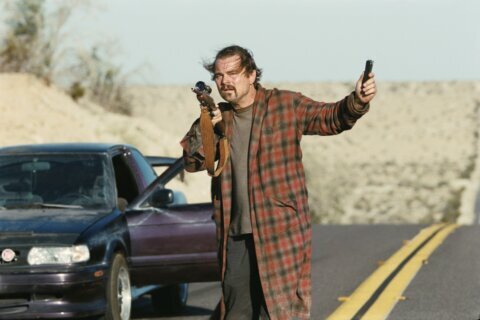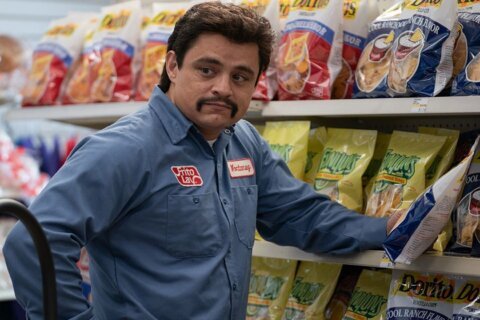WASHINGTON – The Writers Guild of America recently voted “The Sopranos” the best written show in TV history.
How easy it is to forget it was also one of the best acted.
When I “woke up that morning” and heard of the passing of James Gandolfini, I felt like I’d been whacked.
More so, I thought about how much the entertainment industry has changed since his devilish grin first landed like a duck in our backyard pool in 1999.
How unique to see a character spilling blood on the Jersey streets, while spilling his emotions on a therapist’s couch. The doctor-patient relationship was never more delicious, as we wondered how long Lorraine Bracco could keep Tony’s murderous secrets.
But Tony Soprano was more than just an instant classic character. He was the broad set of Italian shoulders that carried television into a new age, the captain of the ship steering TV past “jump the shark” currents to finally make movies sleep with the fishes.
Before “The Sopranos,” HBO and AMC were cable movie channels. Home Box Office. American Movie Classics.
After “The Sopranos,” they’ve become the leading producers of compelling original content that increasingly eclipses mainstream movies with better writing, directing and follow-up seasons that add more layers than most blockbuster sequels.
The cinephile in me hopes there will always be a place for the communal experience of watching movies on a big screen in the dark with no distractions. Their self-contained format provides a more holistic arc than the majority of television series that play the ratings game, take unnecessary tangents and stick around two seasons too long.
It’s the special shows that prove the power of television’s multi-season format, allowing us to go much further in depth into the characters, storylines and social commentary. This is what creator David Chase ushered in with “The Sopranos,” a new Golden Age of TV Drama that continued with “The Wire,” “Mad Men,” “Breaking Bad” and the binge-watching of Netflix’s “House of Cards.”
But it took a special character and even better actor to carry the load. Gandolfini was that guy, and all the others stood in line to kiss his ring. Tony Soprano was the blueprint for Don Draper, Walter White and every flawed anti-hero trying desperately to keep his family together. If you watch Gandolfini’s arguments with on-screen wife Edie Falco, you’ll see the seeds of Don and Betty’s infidelity implosion, Walter and Skyler’s drug debates, Frank and Claire’s political posturing.
Of course, it all goes back to Pacino and Keaton in “The Godfather,” which “The Sopranos” gives due reverence to the point of selling bootlegged Coppola tapes. Cinema has long cherished Michael Corleone as its ill-fated mafia puppetmaster, the one pulling so many of society’s strings to protect his family, only to yank the rug right out from under them. Now, TV has its own tragic king.
Perhaps it’s telling how these two gangsters top our best lists, regardless of the medium. We gravitate to them as the American Dream perverted, a blinding commentary of who we are as a people, and a cautionary tale for our own lives. Like Corleone, Gandolfini made one final trip to Italy this week to fade out forever. Unlike Corleone, he was not accompanied by a lowly dog. He was there with his son.
At the young age of 51, we wish we could spend more time with him, pleasantly surprised each time he appeared on stage in “God of Carnage” or on the silver screen in “Zero Dark Thirty” (2012).
But it was he who taught us that, in life and death, you never see the end coming.
And so, I hear Journey playing on the jukebox and sketchy diner patrons shuffling in the background.
Cut to black. Roll credits. Rest in peace.
Follow WTOP Film Critic Jason Fraley on Twitter @AboveTheJFray, read his blog at The Film Spectrum or listen every Friday morning on WTOP Radio 103.5 FM.








